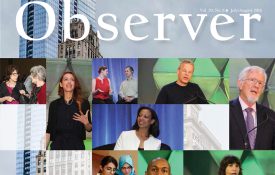-
What Your Brain Looks Like When It Solves a Math Problem
The New York Times: Solving a hairy math problem might send a shudder of exultation along your spinal cord. But scientists have historically struggled to deconstruct the exact mental alchemy that occurs when the brain Visit Page
-

How Rats, Bats, Bees, and People Navigate Their Worlds
Nearly 70 years ago, psychological scientist Edward Tolman introduced the idea that humans and other animals have a “cognitive map” that allows them to navigate their everyday spatial environments. Evidence of physical processes underpinning cognitive Visit Page
-
Can a Brain Scan Tell What You’re Thinking?
Pacific Standard: Mind reading stands as one of science fiction’s most enduring improbabilities, alongside light-speed space travel and laser guns. But unlike those latter two, mind reading actually has a whiff of reality: In a Visit Page
-
Distinct Stages of Thinking Revealed by Brain Activity Patterns
Neuroimaging data can reveal the mental stages people go through as they are solving challenging math problems, according to a new study published in Psychological Science, a journal of the Association for Psychological Science. By combining Visit Page
-
Scientists Explore the Brain’s Navigational Capacity
Participants in the 2016 Presidential Symposium hosted by APS President C. Randy Gallistel included Nobel Laureate Edvard Moser of Kavli Institute for Systems Neuroscience and Norwegian University of Science and Technology, pioneering cognitive psychologist Barbara Tversky Visit Page
-
The empty brain
aeon: No matter how hard they try, brain scientists and cognitive psychologists will never find a copy of Beethoven’s 5th Symphony in the brain – or copies of words, pictures, grammatical rules or any other Visit Page

